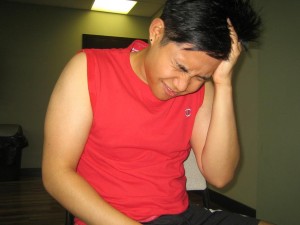Dengue fever is an ailment brought about by the Aedes aegypti mosquito. If an individual is infected by one of the dengue viruses, he/she develops immunity to that virus for life. Nevertheless, one can still become infected by the other dengue viruses.
Indications
If an individual ends up with dengue fever, the symptoms typically arise within 4-7 days after the initial infection. In most instances, the symptoms are mild and might be mistaken as the flu.
Young children who have not acquired the infection before might end up with a mild illness than the adults and elderly. The symptoms typically last for around 10 days and can include:

- Intense headache
- Sudden, high fever (usually up to 106 degrees F)
- Mild to severe nausea
- Swollen lymph glands
- Minor skin bruising
- Skin rash
- Intense muscle and joint pain
- Mild to severe vomiting and nausea
- Minor bleeding from the gums or nose
- Febrile convulsion
How is dengue fever diagnosed?
The doctor will request a blood test to assess for the presence of viral antibodies or an infection. In case the symptoms of dengue arise after travelling to other countries, a doctor must be consulted to check if infected.
Management
At the present, there is no available medication or treatment specific for dengue fever. If an individual is suspected to be infected by the dengue virus, over-the-counter pain medications can be given to reduce the fever, joint pain and headache. Nevertheless, ibuprofen and aspirin can result to increased bleeding and must be avoided.
The doctor will conduct a medical exam and the individual should get enough rest and drink more fluids. If the individual feels worse after the initial 24 hours of illness (when the fever has settled), he/she must be taken to the nearest healthcare facility to be assessed for any complications.
